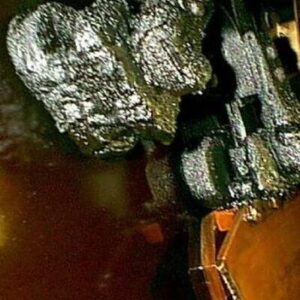This course will serve anyone who is invloved in the decision making processes in the transformers industry, substation management and to high-level tech experts such as foremen, job leaders, etc.
The L2 Transformer Condition Assessment Course offers a comprehensive learning experience for professionals working with oil-filled power transformers and substation diagnostics. This course consists of 13 lessons designed for individuals at different levels of expertise.
Basic Level: The course begins with an introduction to transformer condition assessment, covering key technologies and processes to evaluate transformer health.
Key topics include the importance of benchmarking equipment, making critical decisions based on data, understanding partial discharge, vibration, and sound analysis, and applying severity criteria.
Intermediate Level: Vibration and sound analysis help assess transformer conditions and cooling systems, with a focus on oil circulation pumps and main windings.
Partial discharge detection through acoustic emission is explored to identify electrical leakage and arcing in transformers.
Infrared thermography is introduced to detect hot spots in transformers and their components.
Master’s Level: Advanced lessons dive into the analysis of transformer conditions, including detailed vibration analysis, partial discharge detection, and oil quality testing.
The course provides hands-on training with virtual sessions to enhance practical understanding, especially for vibration and sound testing of transformer components.
Participants will learn diagnostic techniques, data interpretation, and how to implement these tools to improve transformer maintenance and performance.
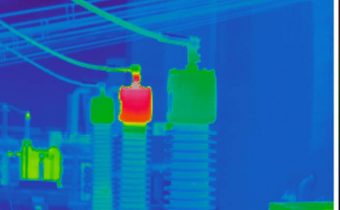
L2 TCA Course – e-lesson #1: Introduction
Explaining Level I testing and compare to Level II, giving an overview of PD detection, vibration & sound level analysis for power transformers, etc.
VIDEO | PRESENTATION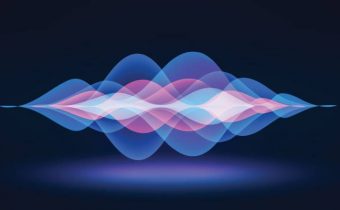
L2 TCA Course – e-lesson #2 – Vibration and sound analysis of oil filled power transformers
Provide an understanding of Vibration Analysis used to determine the clamping pressures (tightness) of an oil filled power transformer
VIDEO | PRESENTATION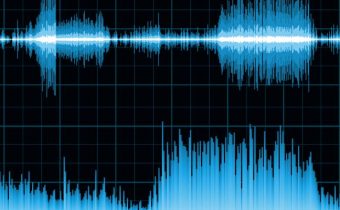
L2 TCA Course – e-lesson #3: Understanding Partial Discharge (PD)
After the live event has been held, all of the lessons can be attended on demand.
VIDEO | PRESENTATION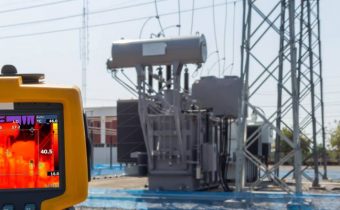
L2 TCA Course – e-lesson #4 – Infrared Thermography for Transformers/Substation Components
Fourth e-lesson in the L2 TCA Course, conducted on the intermediate level
VIDEO | PRESENTATION
L2 TCA Course – e-lesson #5 – Dissolved Gas Analysis and Oil Quality
Providing an understanding of oil sampling process, discussion concerning galvanic action in the sampling area, etc.
VIDEO | PRESENTATION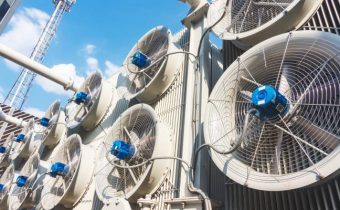
L2 TCA Course – e-lesson #6 – Functional Testing & Visual Inspections
This is the sixth e-lesson in the L2 TCA Course.
VIDEO | PRESENTATION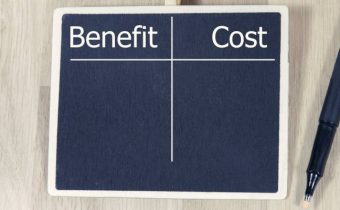
L2 TCA Course – e-lesson #7 – Report Generation and Cost Benefit Analysis
A quick and easy CBA method is presented during this lesson.
VIDEO | PRESENTATION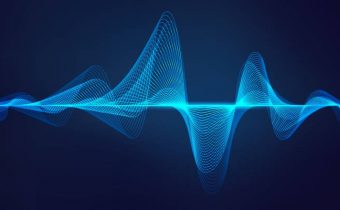
L2 TCA Course – e-lesson #8 – Vibration and sound analysis: Master’s level
This is the first e-lesson hosted on the Master's level of the L2 TCA Course.
VIDEO | PRESENTATION
L2 TCA Course – e-lesson #9 – Partial Discharge Detection & Analysis
The content of this lesson is fully vendor-agnostic, but it is sponsored by SPECO.
VIDEO | PRESENTATION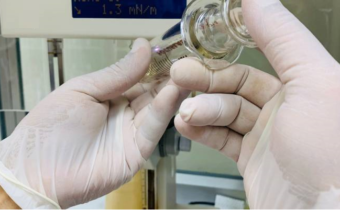
L2 TCA Course – e-lesson #10 – Dissolved Gas Analysis and Oil Quality
This lesson is conducted on Master's level.
VIDEO | PRESENTATION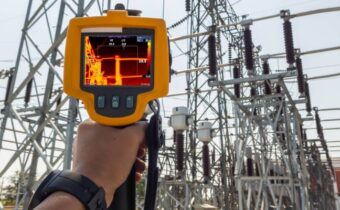
L2 TCA course – e-lesson #11: Infrared Thermography (IRT) applied to UHV power transformers and various substation components
This is the lesson #11 in the L2 TCA Course.
VIDEO | PRESENTATION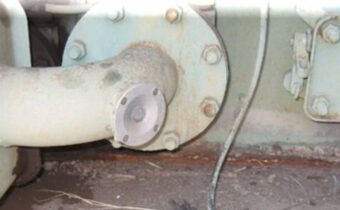
L2 TCA course – e-lesson #12 – Visual Examination & Functional Testing
This session is conducted on the Master's level of the L2 TCA, authored and conducted by Mr. Jon Giesecke.
VIDEO | PRESENTATION
L2 TCA course – e-lesson #13 – Report generation and cost benefit analysis
This is the final e-lesson of the Level two condition assessment course, conducted on the Master's level.
VIDEO | PRESENTATION
L2 TCA Course – e-lesson #1: Introduction
Explaining Level I testing and compare to Level II, giving an overview of PD detection, vibration & sound level analysis for power transformers, etc.
VIDEO | PRESENTATION
L2 TCA Course – e-lesson #2 – Vibration and sound analysis of oil filled power transformers
Provide an understanding of Vibration Analysis used to determine the clamping pressures (tightness) of an oil filled power transformer
VIDEO | PRESENTATION
L2 TCA Course – e-lesson #3: Understanding Partial Discharge (PD)
After the live event has been held, all of the lessons can be attended on demand.
VIDEO | PRESENTATION
L2 TCA Course – e-lesson #4 – Infrared Thermography for Transformers/Substation Components
Fourth e-lesson in the L2 TCA Course, conducted on the intermediate level
VIDEO | PRESENTATION
L2 TCA Course – e-lesson #5 – Dissolved Gas Analysis and Oil Quality
Providing an understanding of oil sampling process, discussion concerning galvanic action in the sampling area, etc.
VIDEO | PRESENTATION
L2 TCA Course – e-lesson #6 – Functional Testing & Visual Inspections
This is the sixth e-lesson in the L2 TCA Course.
VIDEO | PRESENTATION
L2 TCA Course – e-lesson #7 – Report Generation and Cost Benefit Analysis
A quick and easy CBA method is presented during this lesson.
VIDEO | PRESENTATION
L2 TCA Course – e-lesson #8 – Vibration and sound analysis: Master’s level
This is the first e-lesson hosted on the Master's level of the L2 TCA Course.
VIDEO | PRESENTATION
L2 TCA Course – e-lesson #9 – Partial Discharge Detection & Analysis
The content of this lesson is fully vendor-agnostic, but it is sponsored by SPECO.
VIDEO | PRESENTATION
L2 TCA Course – e-lesson #10 – Dissolved Gas Analysis and Oil Quality
This lesson is conducted on Master's level.
VIDEO | PRESENTATION
L2 TCA course – e-lesson #11: Infrared Thermography (IRT) applied to UHV power transformers and various substation components
This is the lesson #11 in the L2 TCA Course.
VIDEO | PRESENTATION
L2 TCA course – e-lesson #12 – Visual Examination & Functional Testing
This session is conducted on the Master's level of the L2 TCA, authored and conducted by Mr. Jon Giesecke.
VIDEO | PRESENTATION
L2 TCA course – e-lesson #13 – Report generation and cost benefit analysis
This is the final e-lesson of the Level two condition assessment course, conducted on the Master's level.
VIDEO | PRESENTATIONAbout the author

Jon Giesecke
Mr. Giesecke is one of the world’s leading experts in combining technologies used in the in-service inspection of high voltage oil-filled power transformers and substation diagnostics. He has been training personnel worldwide in these methods for over 20 years with great success.
Prior to forming JLG Associates LLC in 2006, Giesecke was employed by EPRI Solutions as a senior project manager in the Substation Predictive Maintenance business area.
As a Senior Project Manager, some of his responsibilities included: the development and implementation of the Substation Predictive Maintenance Program (SPdM) at numerous electric utilities in the U.S. and abroad; Developing and Instructing an EPRI Solutions’ SPdM course; instructed portions of the EPRI Transformer Performance Monitoring and Diagnostics course and the EPRI Substation/Switchyard Predictive Maintenance course; Providing training, services and consulting to evaluate maintenance responsibility and advanced programs applied to switchyard/substation components.
Along with vast knowledge in transformer and substation diagnostics, Mr. Giesecke is an ITC level III thermographer has instructed at the FLIR ITC training center. He also served on the board of directors of the International Society of Professional Thermographers, Inc. (ISPoT), and chaired the ethics committee. He has over 20 years of experience in transformer/substation predictive maintenance and over 25 years in substation electrical maintenance. He was also responsible for PdM template development for fossil and nuclear applications. He has been instrumental in the data acquisition and analysis of data at many nuclear facilities, aiding the nuclear power industry in creating a timely response to INPO’s SOER 99-01 and 2002-03.




